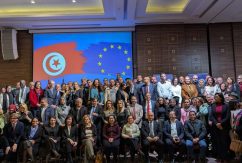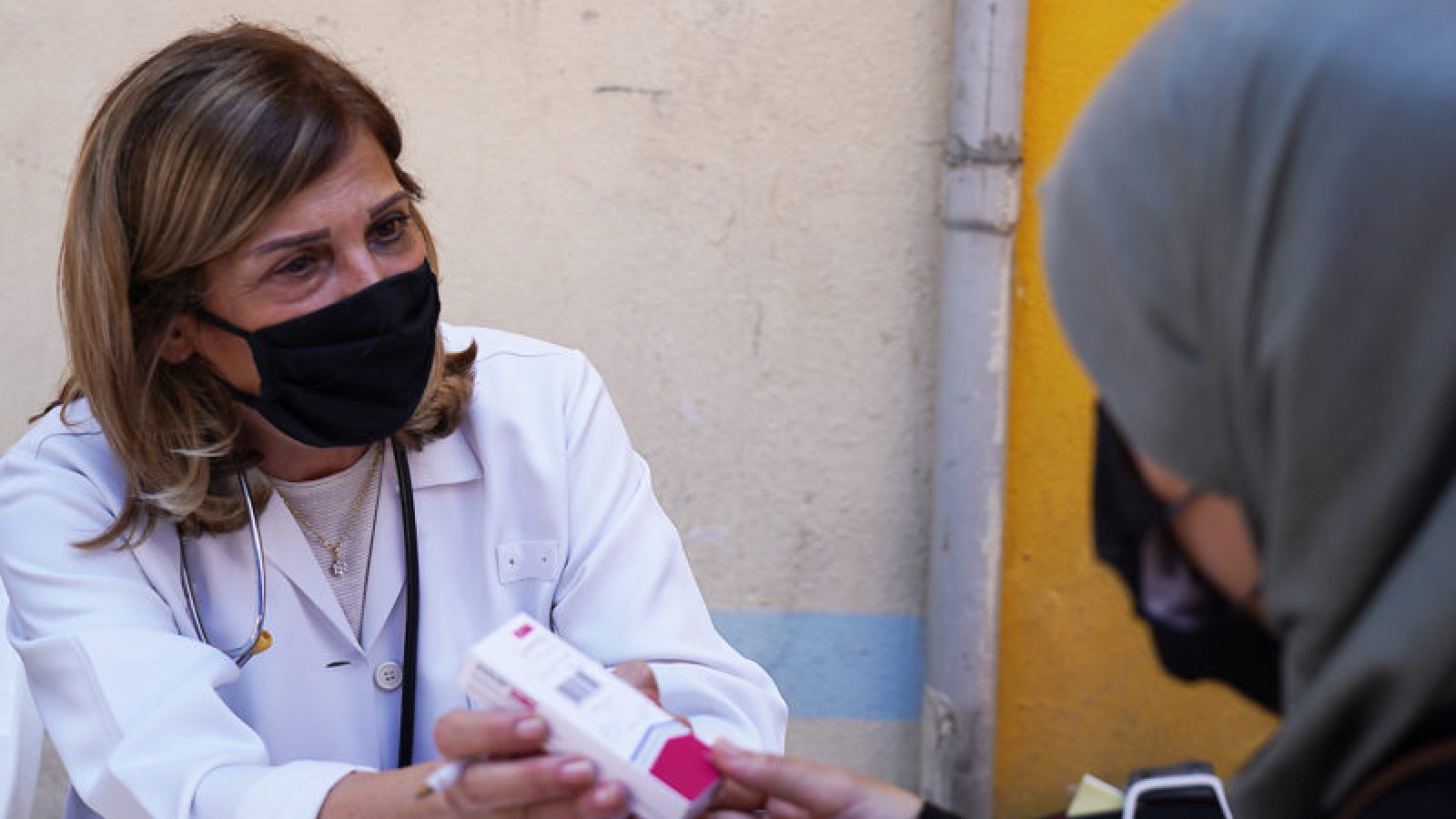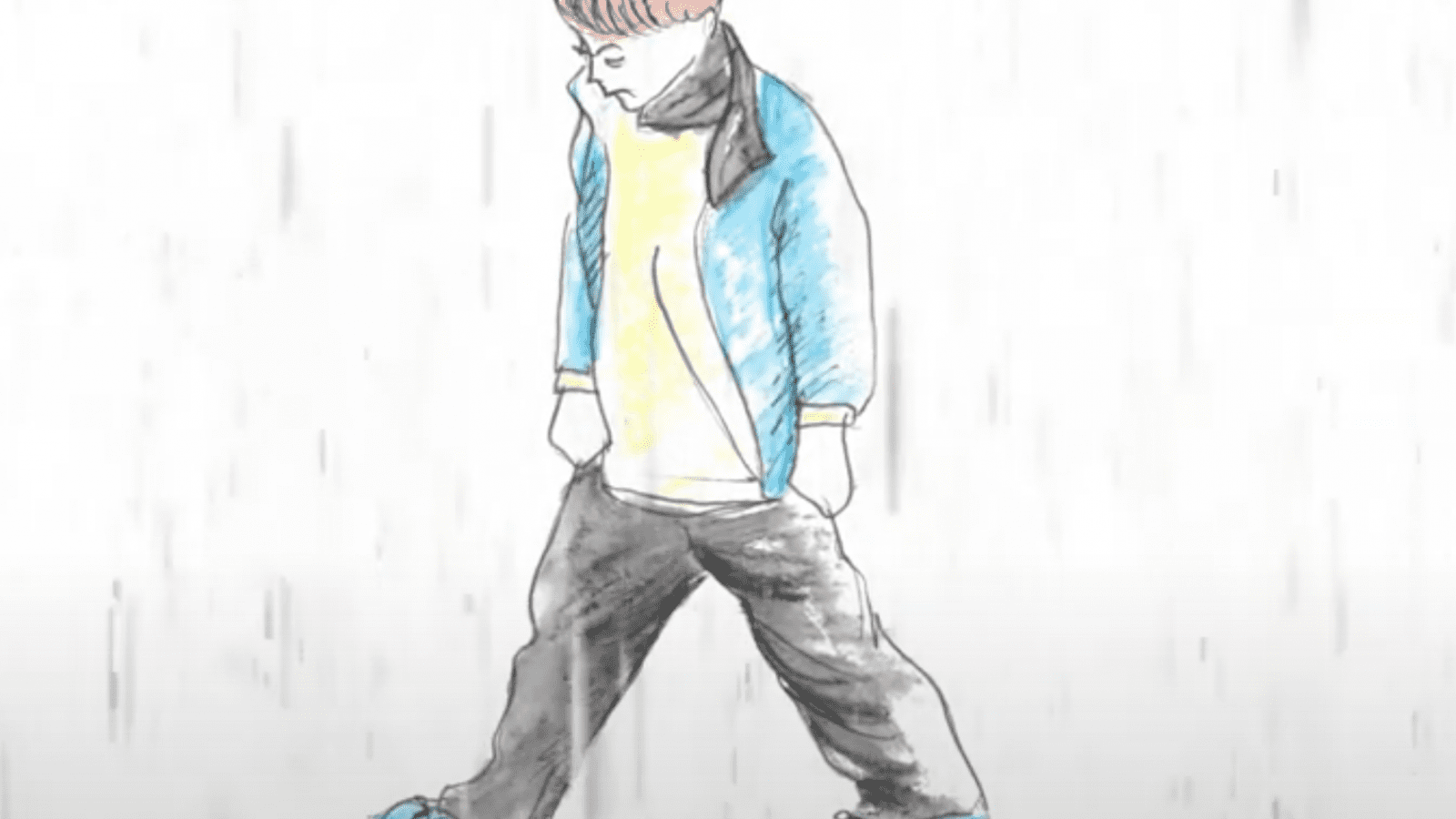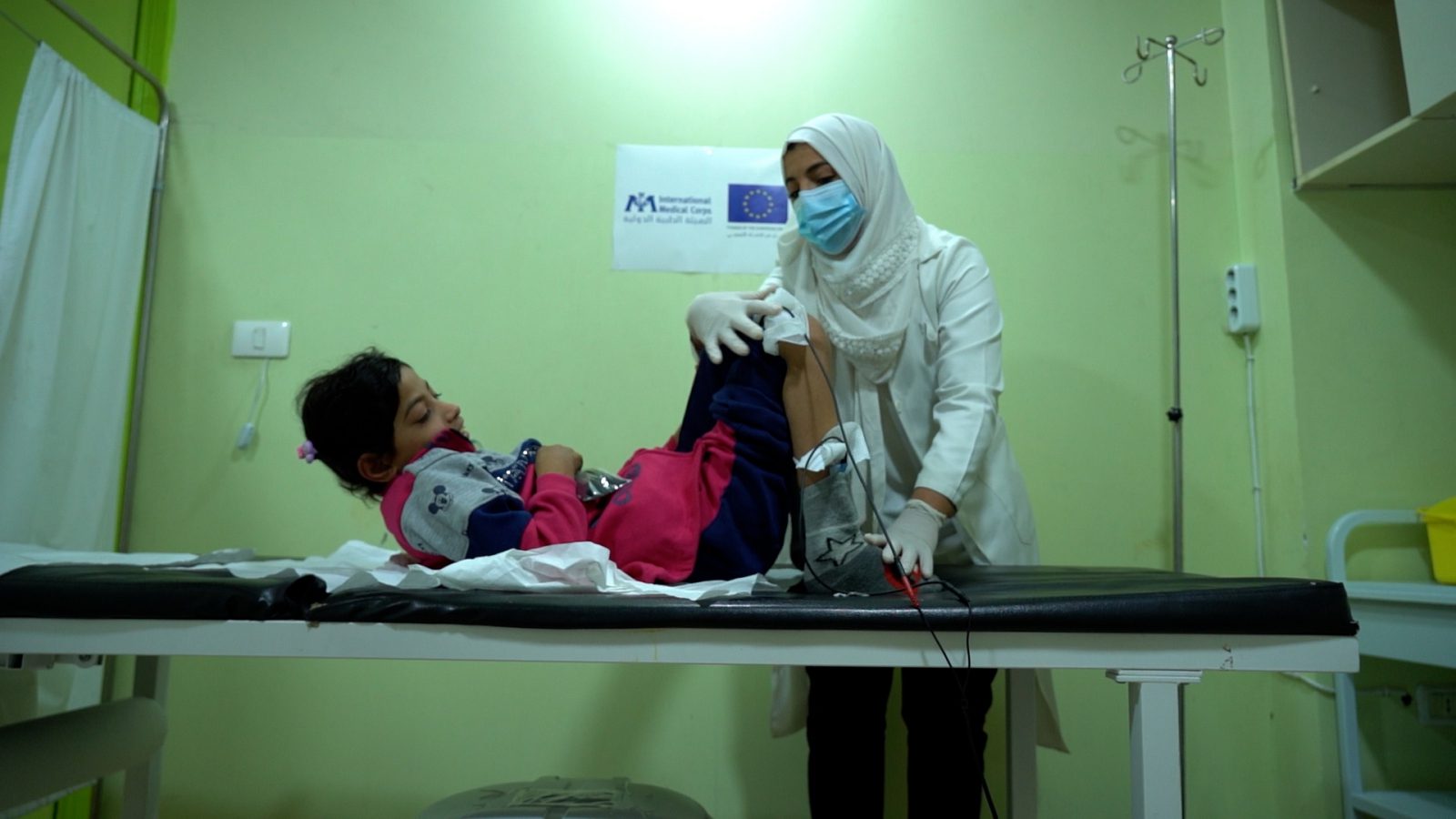Lending a caring hand: EU-funded project brings healthcare to most vulnerable
“Although I was not directly touched by the blast, it heavily affected me. I couldn’t focus on work anymore and I couldn’t even sit with my family or friends. I wasn’t sleeping, and I lost my appetite. I was hopeless.” With tears in her eyes, Jinan remembers the struggles she faced in the weeks after the traumatic blast that destroyed a part of the Beirut port on August 4, 2020. “In other words, I had lost all sense of security.”
This sense of security, the Lebanese young lady managed to gain it back thanks to the support of the EU-funded primary healthcare clinic that provided her with the medical attention and psychological care she needed to recover from her trauma. Desperate and looking for help, the young woman had stumbled upon the clinic run by the International Medica Corps in collaboration with Premiere Urgence Internationale and Fundacion Promocion Social. “I contacted the team and set an appointment. After I met with a psychiatrist, we agreed on a treatment plan and I started getting better.” Although she admits she “is not the same person I was before the blast, things have started to get back to normal.” “I wake up every day with a new goal,” she admits with a timid bright smile, adding “now, I feel like I am in control and able to focus again.” The young woman encourages anyone with a problem affecting their life -whatever their background- to seek mental health services, with no shame.
Overcoming barriers towards equal care
Just like Jinan, Karim had lost all hopes of getting better a few years back. “I had been to different psychology centres when I was younger but no one really helped me or knew how to treat me properly,” the young Lebanese man recalls. ”I had given up. I had hit rock bottom and started having suicidal thoughts.” In Lebanon nowadays, many young people and vulnerable families from the refugee and the Lebanese communities are struggling to access decent healthcare. Cost, including the cost of transportation to healthcare facilities, stands as the most significant barrier. Other challenges include rejection of vulnerable Lebanese and Syrians by healthcare service providers; low quality of services at some facilities; lack of awareness of mental health issues; and discrepancy in service provision between different Primary Health Care Centres. Thanks to the EU-funded ‘Reducing Economic Barriers to Accessing Health Services (REBAHS)’ project, at-risk individuals have been taken care of by healthcare professionals, for no to very limited cost. Free or subsidised healthcare services have therefore helped more than 74,000 beneficiaries access mental health education activities and awareness sessions in the past four years, 80% of whom were females. “If it weren’t for the clinic, I don’t know where I would be,” asserts Karim, who says he witnessed a lot of positive changes in his life since he started consulting at the clinic. At the end of the first project cycle -REBAHS 1- the number of primary healthcare consultations provided to Syrian refugees and vulnerable Lebanese had reached half a million, according to the EU Delegation to Lebanon. A number that jumped up to more than 3.2M consultations by the time the project ended in April 2022.
Accessibility and inclusivity
In West Bekaa, south of Beirut, Foza is being wheeled inside the Enaya Medical Centre by her dad, Badr. Keeping her entertained with his phone, he recounts the tortuous journey they had to go through to see her use her hands again. “Two years ago, we heard her scream as she was watching TV. We rushed there only to realise that she had swallowed a 250 LBP coin. We rushed to the ER where they found out that the coin had punctured her esophagus.” Due to a lack of oxygen supplied to the little girl during surgery, Foza suffered brain atrophy and limb paralysis. “She couldn’t talk anymore, and was not capable of standing, walking or even sitting,” her dad recalls with emotion. The Syrian family found out about the Enaya Medical Centre, where Mrs Ola from International Medical Corps provided them with dedicated support. “She made sure we received everything we needed: a wheelchair, 10 physiotherapy sessions bed pads and an air mattress. This made her life much more comfortable already.” Thanks to the support of Dr. Hiba Khatar Hammoud, a Doctor of Physical Therapy at the centre, Foza started exercises to mobilise her muscles. “She wasn’t conscious at all back then,” recalls Dr. Hiba, who witnessed a “tremendous progress since. What really helped is that her parents followed with us throughout.” At home, the parents religiously followed the medical treatment, applying all exercises they learned at the clinic. And the results appeared, Badr rejoices. “The physiotherapy helped her move her neck, her hand and her legs.”
Reducing Economic Barriers to Accessing Health Services (REBAHS)
REBAHS is funded by the European Union and implemented by a consortium comprised of International Medical Corps in partnership with Premiere Urgence Internationale and Fundacion Promocion Social. Started in 2018, the programme aimed to reduce the vulnerability of crisis-affected populations through a better and more effective provision of health and mental health services across Lebanon. It did so by providing free or subsidised primary healthcare services, free healthcare services and assistive devices for persons with disabilities, free mental health, psychosocial support services and psychotropic medications. REBAHS/LPSP was implemented until April 2022 in more than 70 primary healthcare clinics across Lebanon. In the past four years, REBAHS provided more than 51,000 devices to persons with disabilities, both Syrian and Lebanese whilst 2,500 persons with disabilities received physical and functional rehabilitation sessions at the 70 EU-supported clinics across the country.
The EU and its Member States are the leading donors of international aid to those affected by the conflict in Syria. Since the start of the crisis in 2011, the EU has mobilised more than €25 billion to support the most vulnerable Syrians inside the country and across the region. The EU has organised, over 5 consecutive years, from 2017 to 2021, conferences supporting the future of Syria and the region. These have been the main pledging events for the Syria crisis. In 2021, the European Commission mobilised over €141 million in humanitarian aid to provide vital assistance to millions of people inside Syria. Adding to its initial allocation of €130 million, the Commission provided over €10 million to support people suffering from the severe water crisis and drought in northern Syria. The funding also helps support people throughout the winter. An additional €1 million was allocated for COVID-19 response.





























 Syria
Syria 





